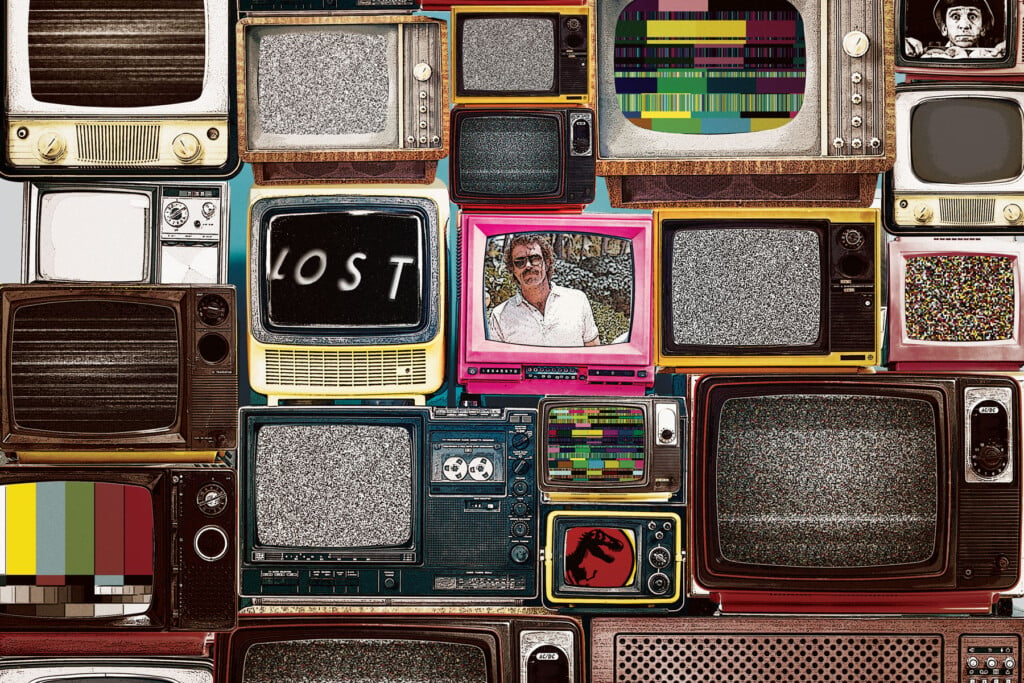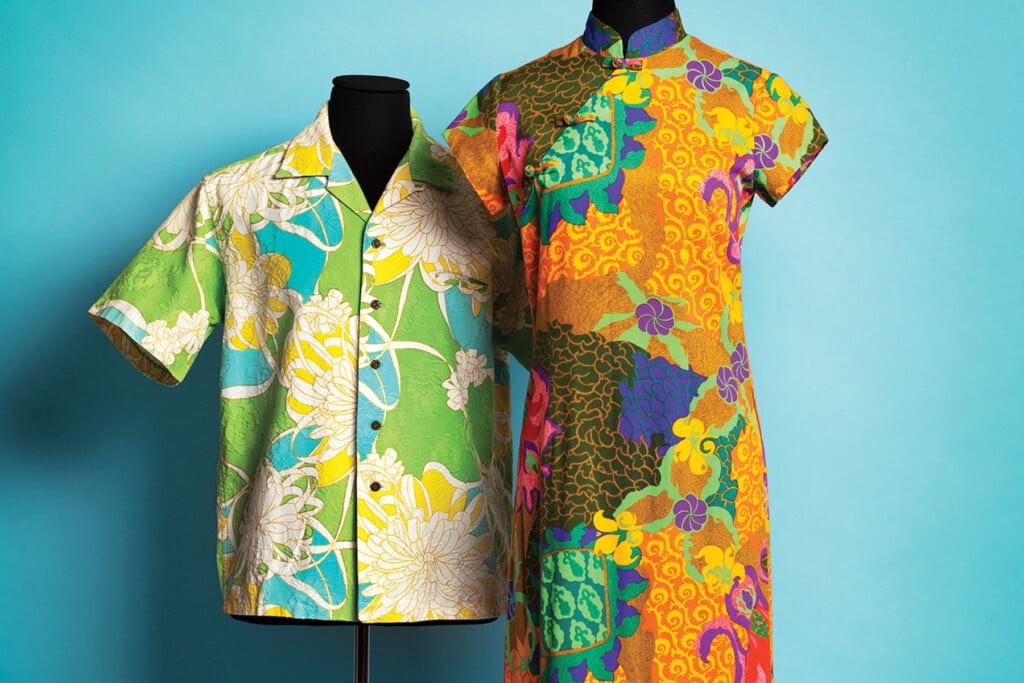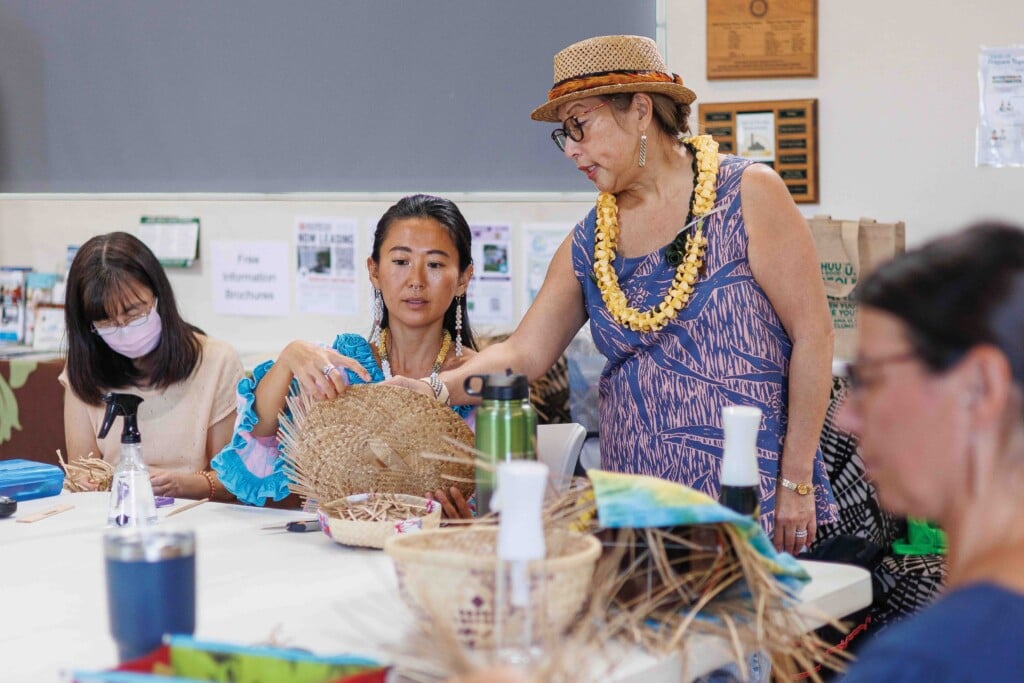Hawai‘i’s Film Feast Is Now a Famine. What Happened?
Only one major TV series is scheduled to be shot on O‘ahu this summer. Local crews and actors are struggling to find work.

It’s always been an up and down business, but Hawai‘i’s film and TV industry has done well in 21st century.
Many TV shows had sustained success. Production on “Lost” lasted from 2004-2010, “Hawaii Five-0” ran for 10 seasons, “Magnum P.I.” for five and “NCIS: Hawai‘i” for three. And all manner of movies filmed here, including “50 First Dates,” “The Descendants,” “Jurassic World” and “Jurassic World: Fallen Kingdom,” “Jumanji: Welcome to the Jungle” and “Forgetting Sarah Marshall.”
But after thriving for years – including a quick bounce back from the pandemic – the film industry is enduring a dry spell.
“There were three or four different productions going on at the same time. Casting companies were fighting over having people to work for them,” says George Krumb, a local actor and member of the Screen Actors Guild. “All of a sudden, one by one, the shows started getting canceled. And now, we’re down to one show.”
In summer 2024, the only major TV show being filmed locally is Fox’s “Rescue: HI-Surf,” an action drama following the lives of lifeguards on O‘ahu’s North Shore.
“The truth be told is that our film industry here is not at its best” now, says Brian Keaulana, a producer, stunt designer and water scenes director on the show. The loss of “NCIS,” he says, was “huge” and left the industry’s Diamond Head studios dormant.
Keaulana, who’s worked on dozens of films and TV shows as a water stunts coordinator, estimates the cast and crew of “Rescue: HI-Surf” is 90% local hires.
“It’s not Hollywood, it’s not mainland or people from the outside. Majority of the film industry (here) is people from Hawai‘i,” he says, but now it’s “sad times.”
(A Netflix reality show called “Temptation Island” is also filming on Hawai‘i Island this year.)
The Perfect Storm
“All kinds of things brought the whole industry to a halt,” says Krumb. “It started with the writers going on strike last May. If there are no writers, there are no scripts. And if there are no scripts, there’s no show. So we lost programs from that.”
Productions continued filming with scripts they already had, but those ran out and caused a delay that was prolonged by the subsequent actors strike, which lasted from July to November 2023.
Krumb blamed the actors strike on producers who “didn’t want to give us the rights to our own image. So you’ve got the writers on strike, you’ve got the actors on strike, and then in August is when the fires in Maui happened. And then the focus all went to taking care of that, which is totally understandable. I mean, it was a devastating event. But for all those things to happen at once, it created the perfect storm.”
The Creative Industries Division within Hawai‘i’s Department of Business, Economic Development & Tourism is the state agency dedicated to strengthening and advocating for Hawai‘i’s creative sector.
Georja Skinner, chief officer of the Creative Industries Division, says film production tax credits are one way to support the industry.
“Any expenditure that is subject to Hawai‘i tax, you can get a 22% credit or rebate back from your expenditures if you’re on O‘ahu, or 27% if you’re on a Neighbor Island. And the reason that there’s a bump up for the Neighbor Islands is because we want to be more equitable,” with more projects statewide, she says.
Productions must spend a minimum of $100,000 in-state to qualify for the tax credit. Another stipulation: “There is a workforce development component that requires the productions give 0.1% of their spend to a local public school or university, and 0.2% of their tax credit rebate must go to the Hawaii Film and Creative Industries Development Fund,” says Skinner.
Shocked That NCIS Was Canceled
After most productions worldwide ground to a halt in 2020 due to the pandemic, Hawai‘i enjoyed a quick comeback with “The White Lotus,” which filmed its first season on Maui at the end of 2020.
“It was filmed at the Four Seasons Resort, which at the time, was basically closed for business. So it was a good situation, because we were in a bubble there. We couldn’t leave the hotel. Not that that’s a bad thing, because it’s a five-star resort,” says Krumb.
The show, which premiered on HBO Max in summer 2021, achieved critical acclaim and won five Emmys for its first season. The show changes locations each year, so that season was the only one filmed in Hawai‘i.
“That was honestly my all-time favorite thing I’ve ever done,” Krumb says. “At least 100 people that worked on that came from here (O‘ahu). And then there were people hired locally on Maui. It was a boom for us at the time because there was nothing else.”
Reboots “Hawaii Five-0” ran from 2010 to 2020 and “Magnum P.I.” from 2018 to 2024. “NCIS: Hawai‘i,” which debuted in 2021, was abruptly canceled after just three seasons despite a loyal following.
Skinner says she was shocked by the move. “None of us really believed that that was going to happen up until the last week. It’s unfortunate, but there’s a confluence of things happening there that indicate it’s not just the viewership or the success of the show, and what the show brought in terms of its integration of diversity both in front of and behind the camera. Think about the fact that the parent company of CBS, Paramount, is for sale. So it really is a dollars and cents decision – not about the talent, the vibrancy of the writing or the show.”
Krumb says the decline in TV shows is especially troubling because the work it provides is “a regular, reoccurring thing” and a more stable source of income for local actors and production crew than a feature film or other work. “
It’s become feast or famine. It was like a feast, and now we’re kind of in a famine. The pendulum has swung the other way. But I have faith with the industry coming back to Hawai‘i and realizing that there’s no other place like us,” he says.
“The fact is, no matter what movie or show they’re filming, Hawai‘i is the star. They’re coming to Hawai‘i because it’s Hawai‘i, one of the most iconic places on Earth.”
Where Do We Go From Here?
Skinner says the good news for the local film industry is it still has a lot going in its favor. “We have a legacy of doing this work, and we have so many strong crews who know what it means to work on a series. The kindness of people in Hawai‘i – the aloha spirit, if you will – is an important dynamic for people that come from elsewhere to work with our crews here,” she says.
“Plus, we have the best water men and women on the planet, who are sought after worldwide. The talent, environment, support systems like food and beverage, hotels and hospitality, and our rich culture make Hawai‘i a great place to live and work.”
She also highlights the state’s support for the industry through initiatives like Creative Lab Hawai‘i, a program founded by DBEDT in 2012 and dedicated to nurturing local talent and developing a creative workforce.
“Creative Lab Hawai‘i is a premium entrepreneurs accelerator program that has really netted some great results for local screenwriters that still live here,” says Skinner. “And that’s our goal at Creative Industries, to find a way to ensure that our talent stays here. We encourage our actors to participate in writing programs and things like that. It’s almost as if you have to treat it like CrossFit for creatives. You need programs that do the whole entrepreneurial gamut.”
Keaulana says the local industry must become less dependent on outside productions coming here and invest in homegrown talent instead. He says that’s why he and his team started a nonprofit called ICAN – the International Cultural Arts Network.

The only TV series currently in local production is rescue: Hi-surf, a show about O’ahu North Shore lifeguards that premieres this fall | Photo Courtesy: Fox
“It’s grabbing and gravitating our actors here, into a level that could only be attained (before), I think, by going to the mainland and going to art schools and academies. But what we’ve done is bring a master class over,” with the involvement of high-level actors, says Keaulana.
“We have great actors that have come from here: Jason Momoa and The Rock, Bette Midler and Kelly Hu, Tia Carrera, the list goes on. And that’s what we’re doing with ICAN: asking those people to reinvest in ourselves.”
Unlike Hollywood, which has a cutthroat reputation, Keaulana says the industry in Hawai‘i is leaving a distinct legacy. “It’s different, I think, in the mainland, where people compete and try to step on each other. In Hawai‘i, for us it’s how do we elevate people around us? How do we push them further? For me, my dream is I wish someone would go further than I have.”
icanintl.org and creativelab.hawaii.gov






